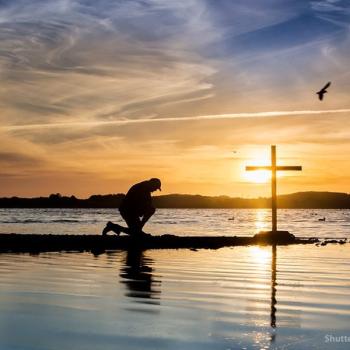
by, Christian Lingner
As this holiday season came to maturity within me over the last couple weeks, and I finally began to return to those traditions which remind me of my spiritual continuity since childhood, I fell once again, fast and fully, under the spell of “Auld Lang Syne.” It has always seemed to me a perfect song, whose musings and melody are bound together so tight as to be inextricable, like soul and body. Yet, because I have developed the adult tendency to understand by dissection rather than digestion, I attempted to untie that Gordian knot by examining the lyrics printed on a sheet of paper.
“Should auld acquaintance be forgot
And never brought to mind?
Should auld acquaintance be forgot
And days of auld lang syne?”
The phrase from which the song draws its title, preserved in the lyrics’ original Scots language, is often translated as “long, long ago” or “old long since.” For my part, I heartily approve of those who left this phrase untampered in the modern English version, as I cannot help but think these wooden translations do violence to the phrase. Even at the phonetic level, it seems to carry a vernacular charm, rolling off the tongue like fog from the highlands.
Nonetheless, for those with so little knowledge of the song’s history as to be surprised that it was not written specifically for the final cathartic minutes of It’s a Wonderful Life, these translations do provide a helpful entry point for understanding its persisting legacy. Composed by the poet Robert Burns in the second half of the 18th century, the song rapidly gained popularity across the English speaking lands, where it eventually took its place among standard New Year’s Eve festivities, its opening rhetorical question encouraging eager party-goers to reflect upon the year coming to a close before celebrating the year to come.
Upon learning of this tradition, I began to consider the contrast between our contemporary outlook and that of times “auld lang syne.” Whereas I associate New Year’s Eve primarily with anticipation, with the design of next year’s resolutions and the count-down to that strange midnight dawn, these people in the past had, at the very least, kept sacred one tradition dedicated to memory of times gone by. However, trying not to get ahead of myself, I read on, soon encountering these words:
“We two have run about the hills,
And picked the daisies fine;
But we’ve wandered many a weary foot
Since auld lang syne.
“We two have paddled in the stream,
From morning sun till dine;
But seas between us broad have roared
Since auld lang syne.”
As is so often the case with old songs, the middle verses bear the greater load of meaningful content and are also, incidentally, the first forgotten. The song’s first two stanzas, paired by a celebratory chorus, seem fit for a cheerful Scottish pub, where members of a merry chorus offer each other winks and drinks for the sake of the “good ol’ days.” Now the song seems to take an odd turn by offering two verses in which, in both cases, a childhood memory is followed up by the admission of some painful reality. This pairing could be taken to communicate a recognition of the balance between happy and sad elements of the past, or, as I think is more likely, intentionally moves from a positive note to the negative in order to emphasize how the passage of time often coincides with increased hardship. Regardless, these verses certainly acknowledge the reality of sad memories, while insisting on an immediate return to the chorus and its famous affirmation of times “auld lang syne.”
It was this unflinching and abrupt transition from sad recollection to celebratory affirmation which alerted me to the fact that this old song might have something significant to tell us about what it means to remember and, by extension, how we should make sense of our experiences more generally.
We now approach the end of a year during which our metal has been tested repeatedly by onslaughts of anxiety, loneliness, sickness, and social upheaval, all of which, if you’re like me, discourage reflection. I in no way wish to insinuate that this year has been exceptional when compared to myriad other difficult times in human history. However, because my experiences since March have been characterized by a level of sustained difficulty I had not yet encountered, reflection itself has also proven uniquely challenging.
Before this year, if I took it upon myself to reflect, the process usually amounted to taking an inventory of the happy and sad moments, the ups and the downs, before moving on at the soonest opportunity under the sunny impression that “all in all, I have a lot to be grateful for.” I certainly have nothing against maintaining a sense of gratitude, and, insofar as we have experienced earthly blessings, it is right and good for us to be grateful for those things. However, if we limit our reflection to this sort of exercise, I believe that we place ourselves in a precarious position.
Why is this sort of reflection dangerous? Well, let us suppose that the year on which we are reflecting has been rather hard, as this last one has been for many of us. What happens when the scales aren’t balanced, and, for all our optimism, it can hardly be avoided that pain prevailed over the period in question? Furthermore, what are we to do when we realize that our difficulties carry right up to the present and betray little suggestion of abating? Then our sincere but opportunistic gratitude fails in offering solace and we, so unaccustomed to thinking on a further level, are left without comfort exactly when we need it most. In other words, the type of reflection that amounts to placing pleasurable and painful experiences on a scale could only prove helpful for those who don’t need help.
It is when we are forced to reckon with the pervasiveness of our pain that many of us are likely to fall back on the refrain: “well, it could’ve been worse.” This, as you may notice, is nothing but the sullen sister of the first “platitude of gratitude,” because it too relies on relative thinking. It is nothing more than the same process, but instead of weighing good against bad, we are weighing one bad against another. As a result, it hardly promises the kind of positive affirmation of life that I believe most of us are after when we reflect.
Unsatisfied with this way of thinking, we may finally resign ourselves to a bit of sad but somewhat refreshing realism: “well, it’s been rough, but that’s just life,” we say, shrugging our shoulders. At this point, we have at long last struck a true note, for we are, at least, being a bit more honest. Within a framework which takes the experience of pleasure and pain as the proper criteria for assessing value, even our easy American lifestyle rarely gives rise to an unambiguously “good year.” However, when we abandon the pleasure/pain matrix, we are often left with nothing but a brute fact: overall, life has been difficult.
This collapse of our existing framework and subsequent encounter with reality requires not only a new disposition to our past, but also constitutes a crossroads in the path along which we are walking.
On one hand, if we really accept our experience as a banal and brutal fact, then we will either fall into a state of mere acceptance of nature, or resolve to expend of all our energy on counteracting nature through the accumulation of materials or power. To put it another way, we can deny ultimate meaning altogether, or define meaning as the act of defying the meaningless whims of nature.
On the other hand, if we accept that our pleasurable and painful experiences only constitute the setting within which the substance of our story has been playing out, then all of our experiences suddenly have the capacity to become meaningful. Like the parabolic plot of land within which a treasure has been buried, our experiences are precious, but only in light of some underlying value which they contain and, often as not, conceal from us.
Paradoxically, when our experiences no longer bear the burden of ultimate value, they are utterly transfigured, taking on an aspect indiscriminately lovely and to be cherished. As with the individual movements of a symphony, of which some are predominated by confident major chords and others by questioning minor strains, so also the strand of our life’s experiences can take on an continuous beauty when understood in light of the theme unifying them.
However, we may wish to ask, this is all well and good in theory, but how could one theme draw together such disparate experiences as we encounter in life? What is this dynamic meaning underlying our experiences? In the terms of the song, how can we celebrate “picking daisies fine” alongside wearisome wandering, or raise a glass to paddling streams together alongside our estrangement across broad seas? I believe Burns has something to say to this effect as well.
“And there’s a hand my trusty friend!
And give me a hand o’ thine!
And we’ll take a right good-will draught,
For auld lang syne.
For auld lang syne, my dear,
For auld lang syne,
We’ll take a cup of kindness yet,
For auld lang syne.”
It would seem that, after all is said and done, “Auld Lang Syne” points us to relationship as that alone which makes our memories worth celebrating and, indeed, their celebration possible at all. Without relationship, our past experiences are often nothing but a sorry fact, but when they call to mind friends with whom we have, as the saying goes, walked through “thick and thin,” these memories do not only have the ability to comfort us in isolation, but also provide the impetus for our gathering together.
I think Burns is entirely right on this score. It seems to me that our supreme task and greatest joy lies in the vocation of friendship, demanding of us that for which we long, a life of bearing one another’s burdens and sharing each other’s delights. For friendship is, quite simply, any relationship characterized by that disposition of the heart signified by the mysterious word which stands forth from the repetitions of the chorus like embossed script: that is, kindness.
This season, we remember God’s ultimate act of kindness, when He revealed the self-sacrificial meaning of friendship by making a way for us to enter into relationship with Him. Yet we must never forget that relationship with God and our fellow man is, of course, a solemn responsibility, but also the most sublime opportunity. Friendship is required of us only in the way life requires eating and drinking, for we have been made such that what we need is what we enjoy, and what sustains our life can become a feast, by the One who wishes we have life, and have it abundantly.
—
Christian Lingner is a writer who recently studied at the Boston College School of Theology and Ministry.













